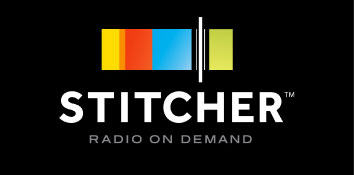Weldon Wulstein is my CFO, CPA, and an extraordinary tax strategist. Last year, he helped people save or get back about 3 million dollars in taxes. Weldon is driven to help people find tax strategies that enable them to keep more of their own money. He is so good at what he does, because he looks at it as a challenge similar to solving a puzzle.
He is here today to talk about the new tax code. This is our first of many podcasts on this topic. This tax reform bill is sweeping and has the biggest changes since the 1986 tax reform bill. A lot of the benefits are directed towards businesses and entities. Weldon shares changes and strategies to begin creating a smart tax saving strategy.
You can find Weldon here:
Ask Loral
Wulstein Financial Services
Weldon Wulstein on Twitter
Show Notes
[01:26] Weldon wants us to keep more of our money as opposed to giving it to the government. This is the goal that guides him. He sees it as a puzzle and he loves puzzles.
- [02:39] The creativity puzzle solving aspect of finances and investing.
- [03:07] How Loral and her team are the alternate finance people, similar to an alternative doctor.
- [03:32] How sweeping the tax reform bill is. It has the most significant changes since the 1986 tax reform bill.
- [04:09] There is now a 21% flat corporate tax rate.
- [05:11] The top rate bracket also went down from 39.6% to 37%.
- [05:31] Weldon’s favorite change is the tax deduction that offsets taxable income for business profits. This deduction comes off of your taxable income. Any business with a net profit gets a 20% deduction of that profit.
- [07:39] Good CPAs will know what is going on, but not everyone will figure out how to utilize these reforms the best.
- [08:31] Sole proprietors are responsible for net taxes plus the 15% self-employment tax.
- [09:20] Let’s say you have an s corp and pay yourself $100,000. With $50,000 on a W-2 and $50,000 as a net profit. The net profit deduction is only attached to that $50,000 net profit. You will need to find the best percentage to take as a wage versus taking it as a profit.
- [10:31] The worst parts are probably the elimination of the mortgage deduction and the elimination of property and income tax.
- [10:54] You can only deduct $10,000 a year in state income tax and property tax.
- [11:36] Your mortgage deduction is limited to a home value of $750,000.
- [12:16] States don’t have to ratify these changes or at least it is not guaranteed.
- [12:59] Only a few of these items will be affected for 2017 taxes. These are mostly for 2018 and going forward. This leaves some time to plan the best tax strategies.
- [13:40] You can’t just do one strategy. The plan has to be individualized.
- [14:24] Rental property write offs are still in place for mortgage interest and property taxes.
- [15:26] These changes will encourage people to move into having an LLC or corp of some type.
- [16:08] AMT tax won’t affect most people making under a million dollars.
- [17:38] There are now limitations on entertainment deductions. You can deduct the meal, but not the entertainment portion.
- [18:58] Think about changing what you are doing to fit the tax code, so that it will fit and become deductible.
- [19:50] All of the final regulations aren’t out yet. Such as the use of gift cards.
- [20:50] The value of what you can transfer in an estate has been doubled to 10 million dollars indexed for inflation.
- [21:53] In about 30 days, there should be some final regulations around these questions. Payroll systems even have to be completely redone.
- [23:40] Use caution when looking stuff up on the Internet and make sure that it is up to date.
Links and Resources:
Ask Loral
Wulstein Financial Services
Weldon Wulstein on Twitter
Tax Reform Bill text at Congress.gov













